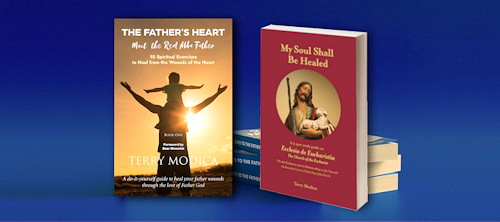Wednesday June 26, 2024

Good News Reflections:
Making scripture meaningful to your daily life
by Terry Modica
“A holy life is what proves the prophet to be true.”
Good News Reflection for:
Wednesday of the 12th Week of Ordinary Time
June 26, 2024
Today’s Prayer:
Beloved Lord, may my words and deeds be fruit produced by Your Spirit working in me, for unless my life is well-lived, I will confuse those who are waiting on You. Amen.
![]() Powerful morning prayers to start your day:
Powerful morning prayers to start your day:
gnm.org/prayers/daily-prayers
Today’s Readings:
2 Kings 22:8-13; 23:1-3
Ps 119:33-37, 40
Matthew 7:15-20
bible.usccb.org/bible/readings/062624.cfm
USCCB Podcast of the Readings:
bible.usccb.org/podcasts/audio/daily-mass-reading-podcast-june-26-2024
What it means to be a true prophet
As we read in today’s Gospel passage, evil can penetrate into our lives when we make the mistake of trusting and spreading wrong messages. A true prophet is someone who takes everything to the Holy Spirit for good discernment while testing his/her accuracy with knowledge of what the Bible and the Church’s teachings say about it, and then speaks up. Such a person is a teacher of truth, not only in word, but also in deed, for a holy life is what proves the prophet to be true.
In our baptisms, we were reborn into Christ and his three-fold ministry of priest, prophet, and king. Let’s consider what it means to be a prophet like Christ. Do our lives prove that we believe the truths that we profess as Christians? Do our actions and attitudes teach the truth? Or do we unknowingly accept falsehoods into our beliefs and then impart them to others by the way we fail to follow Jesus?
Perhaps we combine Christian attitudes with the contradictory mindsets of the world, and thus our example teaches others to pursue unholy goals instead of Godly ways. Or we’ve allowed New Age concepts or moral relativism to be woven into our Christian beliefs, thinking this to be harmless, thereby misleading not only ourselves but also others into lifestyles that are not based on Christ nor centered on Christ.
It’s alarming how few Catholics actually still trust the Church Magisterium (i.e., the official teachings of the Church as written in the Catechism of the Catholic Church, papal encyclicals, etc.). Moral relativism has infiltrated faithful Christians everywhere like cancer, thus allowing the Enemy to influence society, so that now good is considered to be evil, and sin is considered to be “politically correct”.
I’ve heard blame for this being cast in the wrong direction. Some moral conservatives believe that the cure is an ultra-conservative return to the Church the way it was before Vatican Council II. Why? Because holy obedience and faithfulness deteriorated after that Council. But let’s widen our lens and look at what was happening in society coincidentally at the same time as Vatican Council II. It was the 1960s, the decade of the sexual revolution and the loosening of social mores in the US and other western cultures, which then spread to other cultures. Changes in society eroded faithfulness, not the changes in the Church.
How sick is the cancer? To some extent, most of us have been influenced by the notion that “if it seems right to me, I’ll go ahead and do it, even if it goes against a Church teaching” (sexual relations outside the Sacrament of Marriage and the use of artificial contraception are two of the most common examples), because we fail to research the Church’s teaching on it and therefore we remain ignorant about the foundation and goals of love within it.
Some falsehoods are so subtle that we assume they’re coming from God. For example, many have accepted the worldly belief that we’re not supposed to suffer or make sacrifices. What does this teach the world around us? That the way of Christ, which includes the cross, is wrong!
With so many false teachings in our ears, how do we know the difference between what is truth and what is false? Jesus provided the answer: Look at the fruits. Does the message (or the attitude or the decision) lead us — and others — to become more like Christ?
For a Bible Study on the entire Sermon on the Mount, visit wordbytes.org/bible-study/holy-living-1.
To help you reflect further on this, go to our WordByte called: “Is the Catechism Dependable for Teaching the Truth?” @ https://wordbytes.org/faqs/catechism/
© 2024 by Terry A. Modica
![]() To distribute the Good News Reflections in your church bulletin or in RCIA or faith sharing groups, please contact us.
To distribute the Good News Reflections in your church bulletin or in RCIA or faith sharing groups, please contact us.
![]() You can also receive this & more faith-builders by text message on your phone.
You can also receive this & more faith-builders by text message on your phone.
![]() Keep it going! This reflection reached you thanks to benefactors. Please support this ministry today.
Keep it going! This reflection reached you thanks to benefactors. Please support this ministry today.
![]() Post your prayer request.
Post your prayer request.
![]() How else can we serve you today? Visit our homepage.
How else can we serve you today? Visit our homepage.
![]() Search more reflections in our continually growing database.
Search more reflections in our continually growing database.
Homebound, Prison & Hospital Ministers are invited to print and distribute them without further permission.
Continue your prayer time with these:
Pray with Saints | Pray the Rosary | Other Prayers | Random Quotes.
Order and share Terry Modica's books
![[ Listen to the podcast of this reflection ]](https://gnm.org/wp-content/uploads/2019/10/podbean.png)
